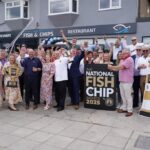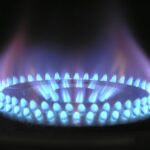The Marine Conservation Society (MCS) has released its latest Good Fish Guide ratings showing just 16 improvements and prompting calls for more data and better management of UK fisheries.
The Guide, which is updated twice a year, uses a traffic light system to help consumers and businesses make sustainable seafood choices depending on where and how a species is caught or farmed.
Covering seafood sold or produced in the UK, green are the ‘Best Choice’ most sustainable options, amber is an OK choice but improvements are needed, and red indicates unsustainable ‘Fish to Avoid’.
In the new Guide, Norwegian farmed halibut makes its way onto the green list from amber, as do cockles from fisheries in Poole Harbour, Thames Estuary & Dee Estuary.
Most Alaska pollock stays a Best Choice, as does Icelandic cod, farmed mussels, herring caught in the North Sea or MSC certified, and albacore or skipjack tuna caught by pole and line.
Dover sole caught in the Irish Sea or North Sea moves from green to amber owing to some concerns for the stocks, while dive-caught scallops from the West of Scotland also move from green to amber due to a lack of data about stock sizes.
Talking about the new ratings, Charlotte Coombes, Good Fish Guide Manager at the Marine Conservation Society, said: “This season’s ratings update shows few improvements to ratings for wild-caught seafood. There were only 16 improvements out of 177 reviewed.
“Many of the ratings on the Good Fish Guide are negatively affected by a lack of data. If we knew more about what was going on at sea, measures could be put in place to protect our marine wildlife. We need the governments of the UK to pay immediate attention to our seas, so that we can have healthy oceans and a sustainable fishing industry.”
The MCS is currently working alongside WWF and RSPB, forming the Future Fisheries Alliance, to campaign for better data to be collected on boats at sea, using Remote Electronic Monitoring with cameras (REM). More data would allow scientists and governments to make informed decisions about how much seafood to catch, to reduce overfishing and put measures in place to reduce bycatch.
Download the Good Fish Guide at: www.goodfishguide.org.
Recent Posts
- National Fish & Chip Awards 2026 open with new category for menu innovation
- Frymax announces Fry to the Max prize draw winners
- National Fish & Chip Day campaign evaluation is in – and it looks impressive!
- Deliveries and takeaways back to growth in May as damp weather keeps people at home
- Hospitality left out of government’s plan to cut energy prices









